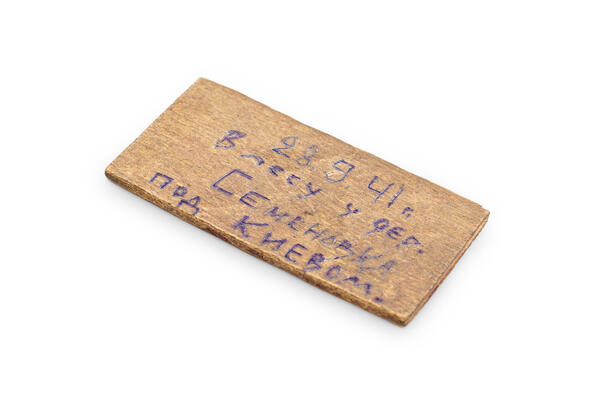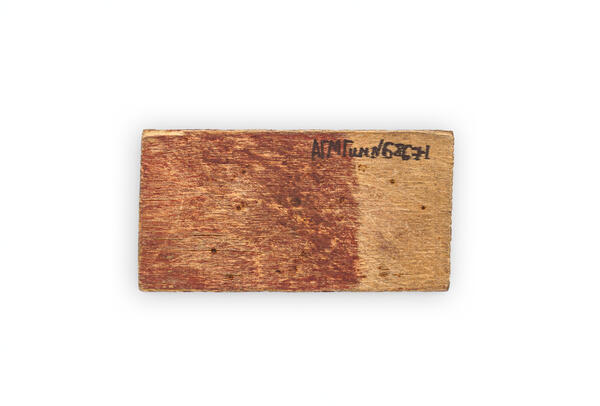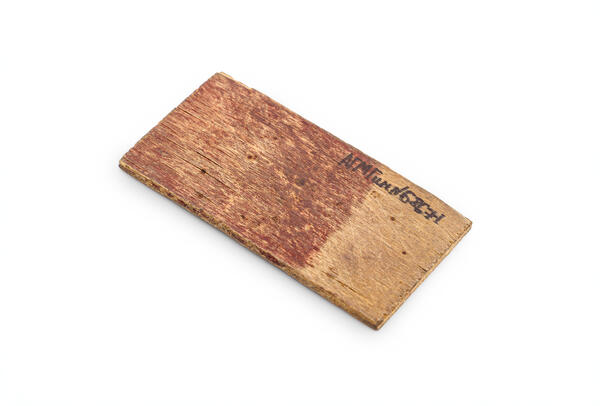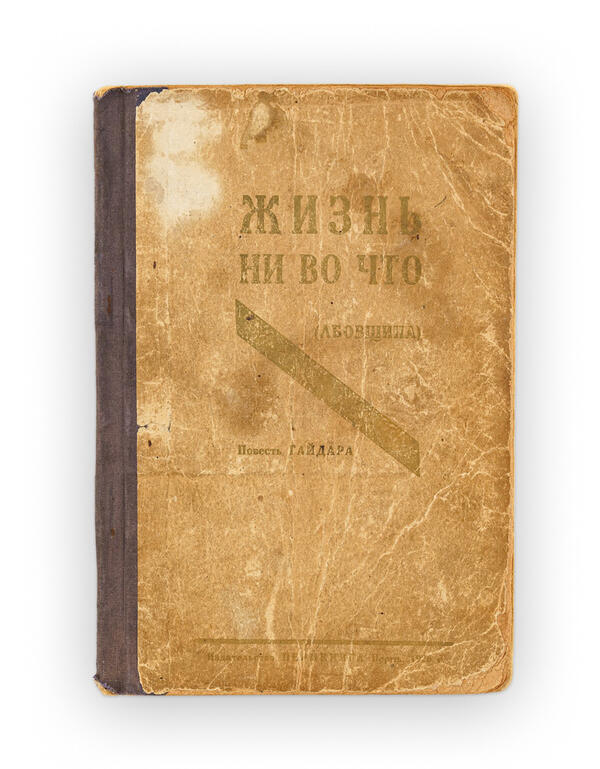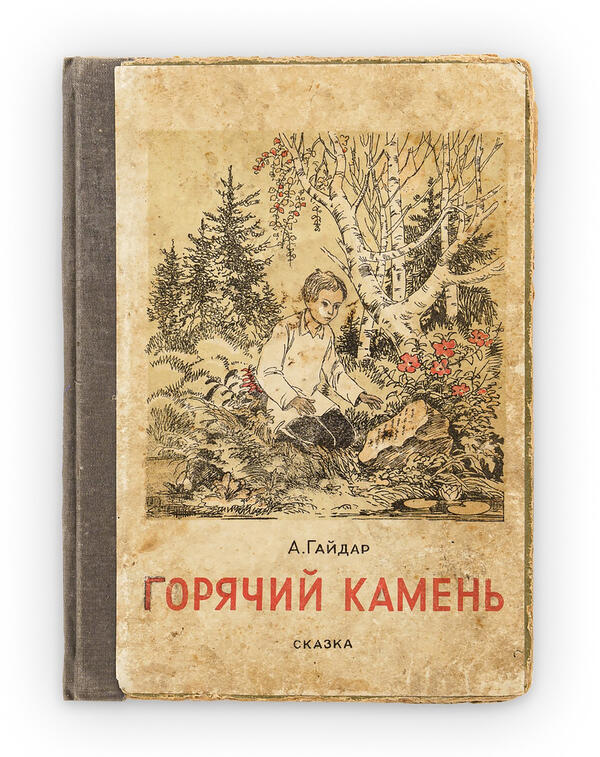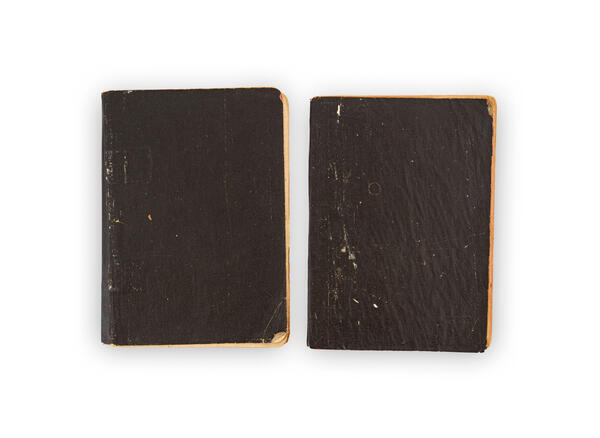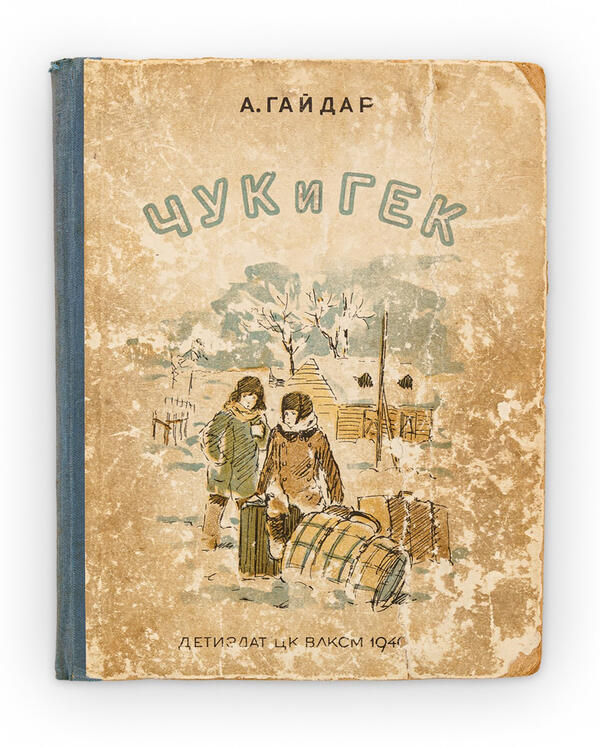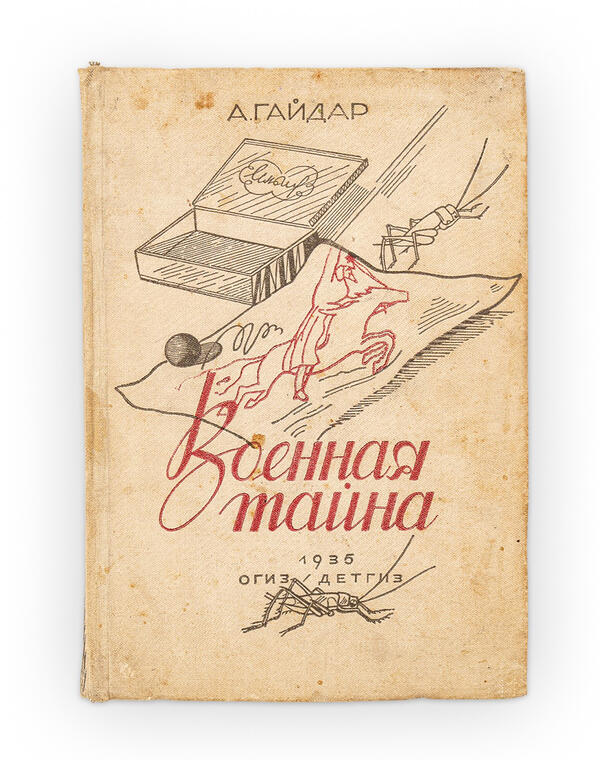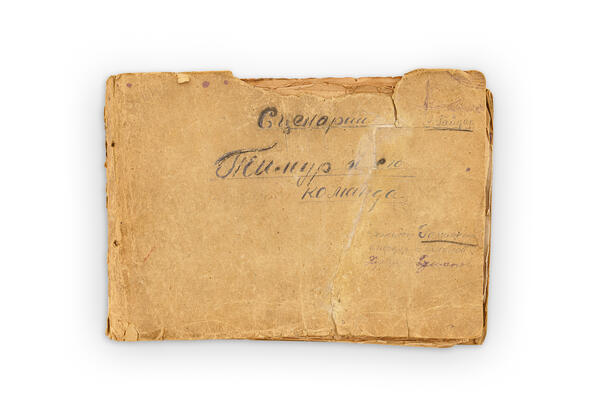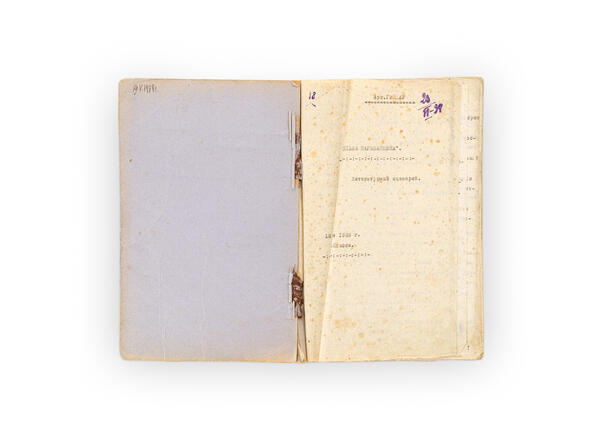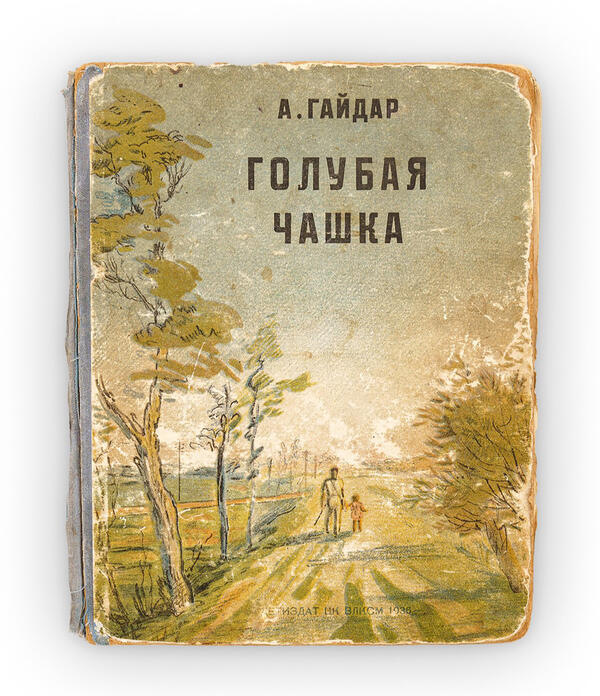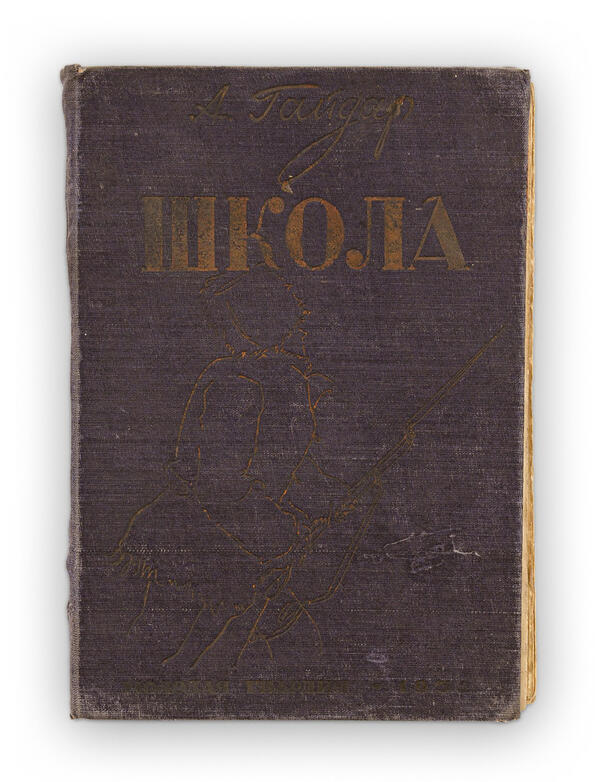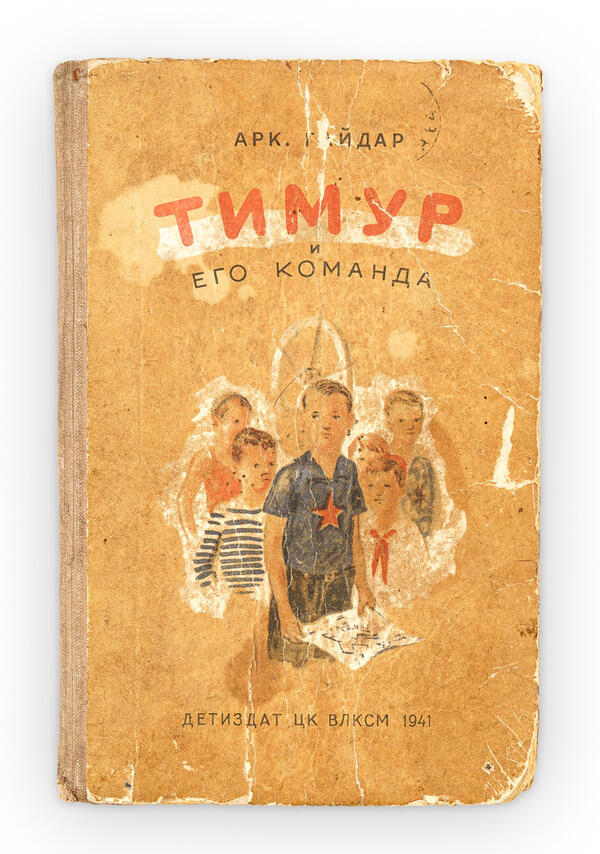The exhibition features a plaque from a box of bottles containing incendiary mixtures. There is an inscription on the plaque, written with a chemical pencil by Arkady Petrovich Gaidar.
With the outbreak of war, Gaidar submitted a request to be sent to the front and left it at the Secretariat of the Union of Writers. In July, the organization petitioned for his medical examination, but he did not pass. However, he received permission from the General Staff of the Red Army to go to the front as a war correspondent for the newspaper “Komsomolskaya Pravda.”
On July 21, Arkady Petrovich left for the Southwestern Front, and arrived in Kiev at the end of the month. Gaidar was the only war correspondent with combat experience. He wore no insignia, only a cotton military shirt with a white collar. When creating news and reports, Arkady Gaidar tried to be where the action was. He often went to the front line and talked with the soldiers.
On August 8, 1941, his frontline correspondence “At the Ferry” was published in “Komsomolskaya Pravda.” The article described the battles and the life of the second battalion and its commander Ivan Nikolaevich Prudnikov, “the best and bravest battalion commander of the best regiment in the entire division.” The next day, Gaidar’s appeal to the pioneers was published in the republican newspaper “Sovetskaya Ukraina.”
In the second half of September, the situation in Kiev worsened. Some war correspondents managed to escape the danger zone by plane. Arkady Gaidar decided to stay in the besieged city and leave with the last units if Kiev had to be abandoned. At that time, he wrote his last letter to his wife.
On September 17, “Komsomolskaya Pravda” published an essay “At the Frontline.” After leaving the besieged city, Gaidar joined the detachment of Colonel Alexander Dmitrievich Orlov. Later, the writer joined the partisan detachment led by Fyodor Dmitrievich Gorelov. There, he served as a machine gunner.
On October 22–23, the camp was surrounded by a
German detachment. Gorelov’s squad began to retreat. On October 26, 1941, five
partisans led by Gaidar were moving towards a new base. In the morning they
stopped for a rest near the railway embankment in the vicinity of the village
of Lepliavo near the Kanev-Zolotonosha railway. Gaidar took a bucket to collect
potatoes at the house of the wayfarer. At the top of the embankment, he noticed
the Nazis hiding in an ambush. He managed to shout, “Guys, Germans!, ” before
being killed by machine-gun fire. His warning saved the others, who escaped the
ambush.

